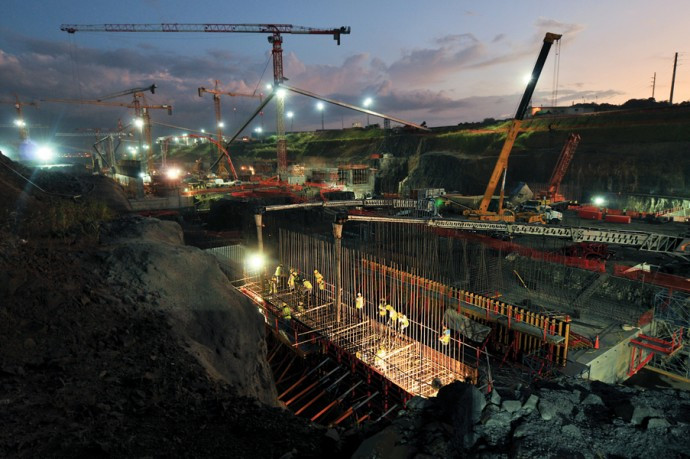Panama Canal Dispute: President Martinelli Blames Former Administrator who Blames Building Contractors

The former administrator of the Panama Canal stands accused of causing a dispute that halted a multi-billion-dollar project to expand the waterway.
Panama President Ricardo Martinelli said former canal administrator Alberto Aleman, is responsible for the crisis at the massive project due to a billion-dollar payment dispute.
The Panama Canal Authority and a consortium led by Spanish builder Sacyr have been engaged in a bitter row over costs for weeks. The consortium wants the authority to pay for $1.6bn (£975m, €1.2bn) in cost overruns, but the authority says the contractor should take up the additional costs.
"He is very responsible for everything that is happening. Everyone here knew the state Sacyr was in, that it had financial problems," Martinelli told in an interview with a local television.
"European companies in general and particularly those in construction, many of them are having problems. I think he knew and should have said it."
Aleman was in charge of the Panama Canal Authority in 2009 when it awarded the $3.2bn contract to enlarge the 80-kilometer waterway linking the Atlantic and Pacific oceans to the GUPC consortium led by Spanish company Sacyr.
The consortium's bid was $363m lower than the canal authority's budget, and about $1bn lower than the bid of its nearest competitor.
Martinelli added that the canal authority should have anticipated the consortium was underbidding.
Aleman's Response
Aleman told local television that he was proud of his work, adding that the contract defends "the interests of the canal".
He added that claims and cost overruns are common in large-scale infrastructure projects. Saying about the selection of GUPC, he noted that the consortium won for technical prowess.
The Panama Canal, built in 1914, handles 5% of global seaborne trade and generates $960m a year for Panama, nearly 10% of the country's total annual income.
With a view to accommodate massive cargo ships in the century-old waterway and boost revenues, the country decided to expand it. Following an auction, it awarded the contract to GUPC.
Later, the consortium said it experienced unforeseen geological difficulties and had to spend more than what was projected. It also accused the authority of providing incorrect data on which it based its estimates.
The battle between the parties is expected to delay the completion of the project by up to five years. It was expected to be completed next year.
© Copyright IBTimes 2025. All rights reserved.






















